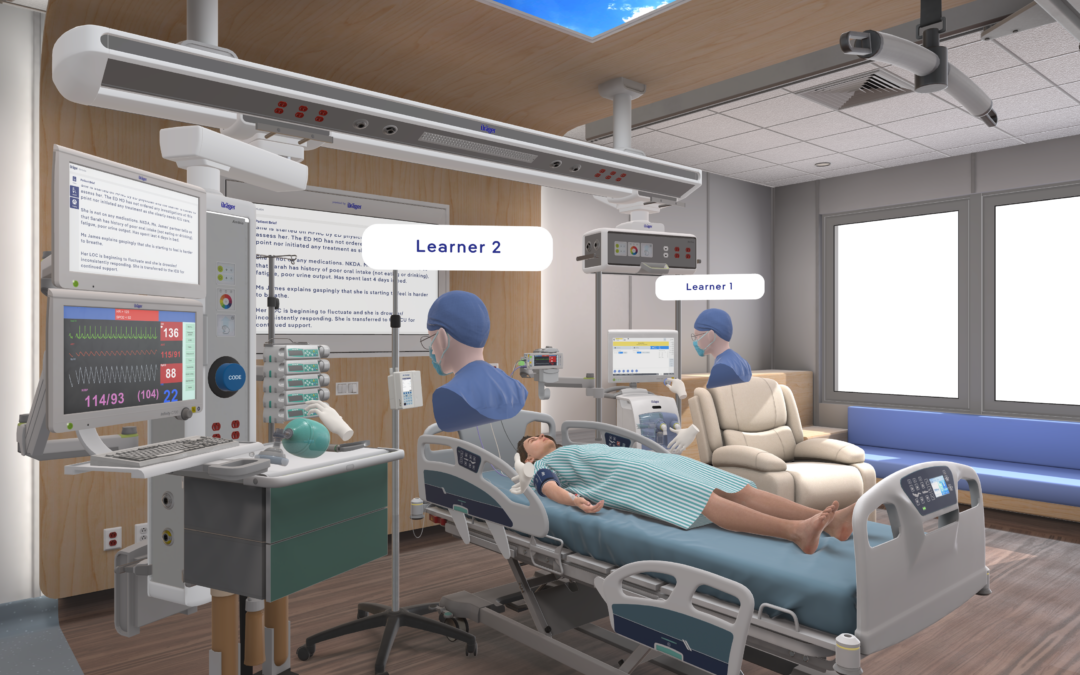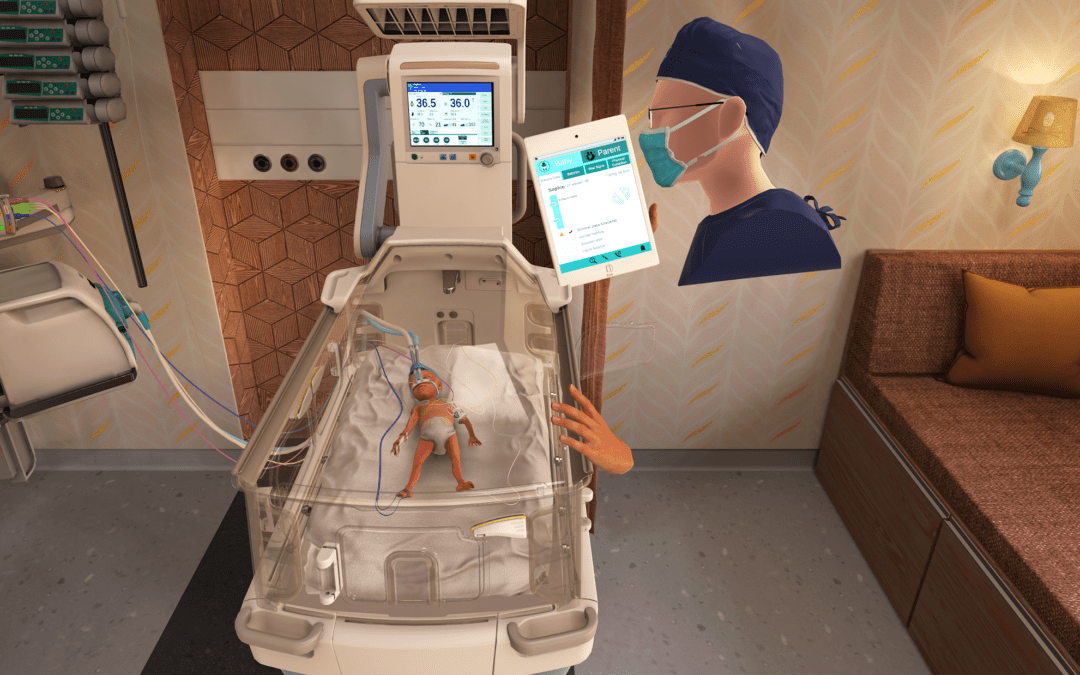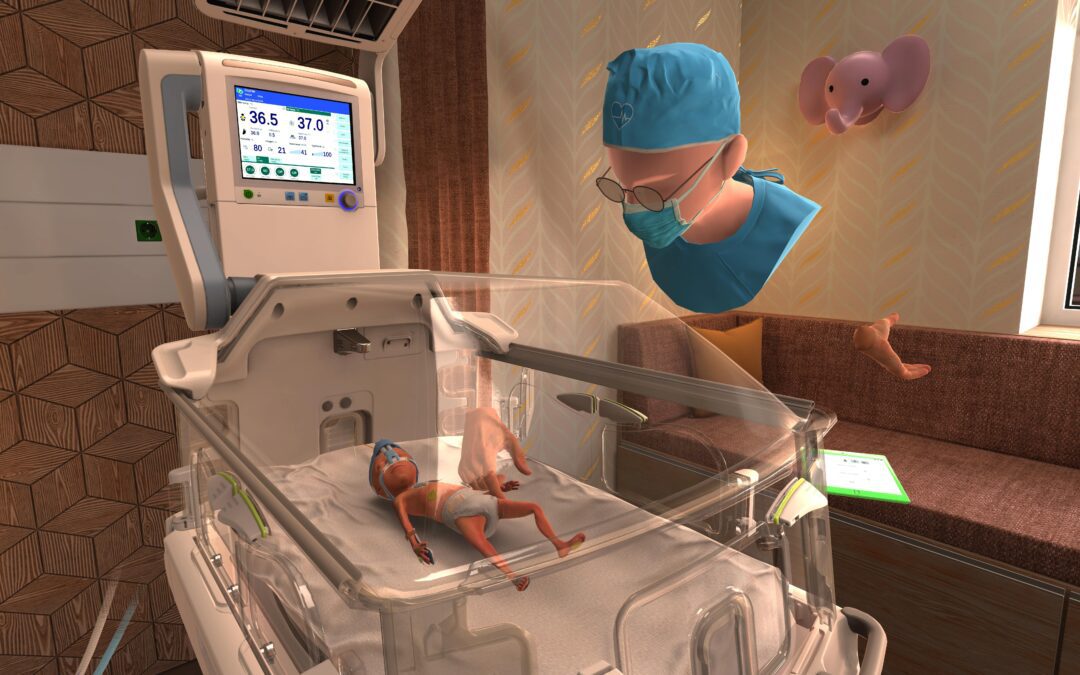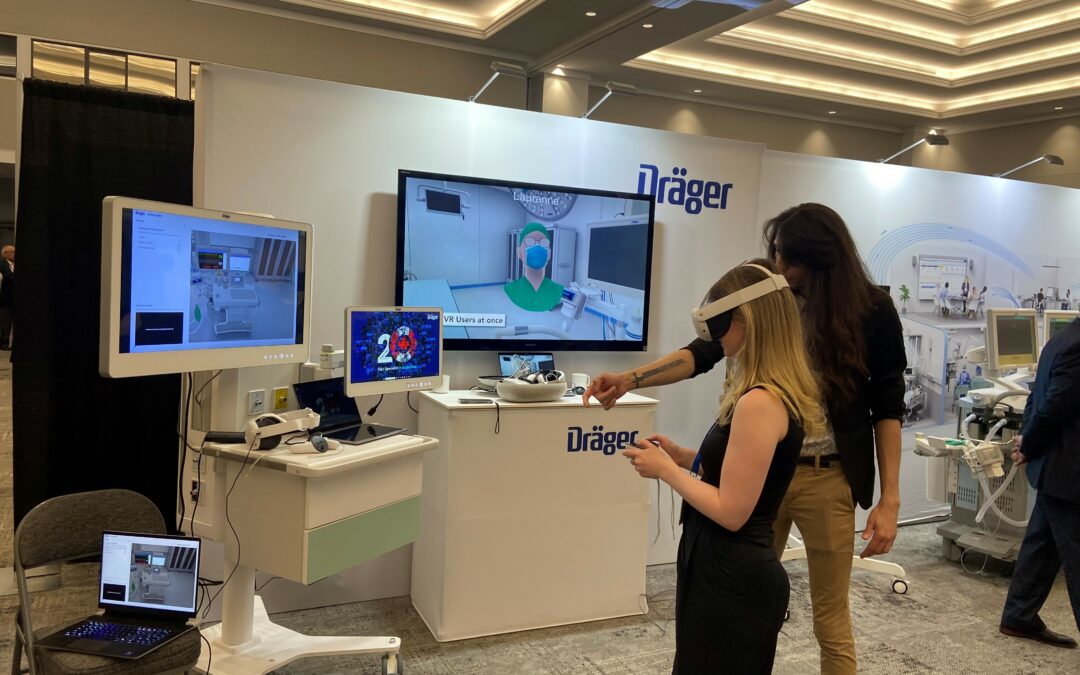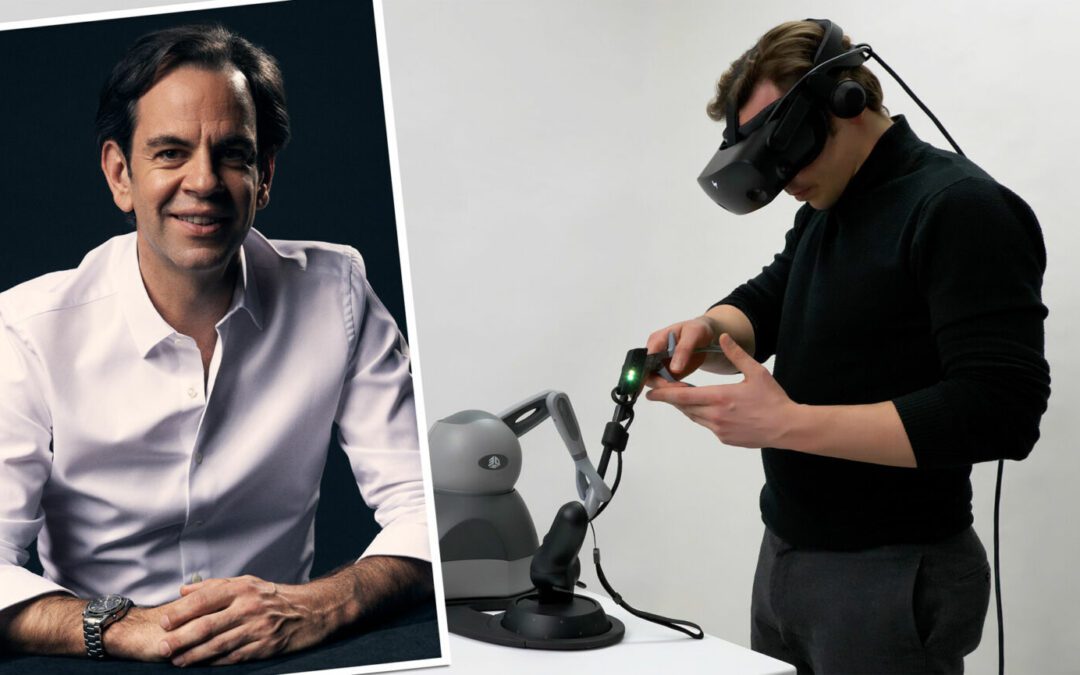This month, VirtualiSurg had the pleasure of supporting long-standing partner Dräger at the International Symposium on Metaverse and Health 2024 in Montréal, alongside our very own Lauranne Sins, Tristan Linderman and Juan Nino.
The symposium arrives in the heat of Canada’s C$2.4 billion pledge to invest in AI research and development, and offered a dynamic intersection where we discussed the future of healthcare and how immersive technologies can pave the way for educating healthcare professionals worldwide. We had the great opportunity to interact with key players in healthcare innovation such as Johnson & Johnson, GE HealthCare, and OROT; as we partook in dynamic conferences, roundtables, and workshops throughout.
Among urgent questions raised included the profound effects of current technologies on wellbeing, such as interactions between Metaverse technologies and personal / collective health. The discussion included policy changes towards adopting AI on a mass scale, and human difficulties involved with improper adoption of these technologies individually. The speakers also recalled the adoption of social media in Patricia Conrod’s prior conference as an example of information technology being used to extend the reach of harmful actors while also acknowledging the inherent benefits of a more connected society.
In another roundtable, the discussion turned the actions that can be implemented in developing research on the effects of Metaverse on health, and the training of actors – the topic of Canada’s significant investment in AI took the forefront as the speakers sought to identify where to best allocate this money, specifically mentioning areas of policy, education, and mass communication.
In all that was discussed, the importance of ethical research, co-design, and naturalisation of these technologies remained evident. Clearly, healthcare is an effective pathway to the early adoption of these technologies, however, the consensus is that it could start with a more holistic approach – in which medical systems worldwide can be rebuilt alongside these technologies to create a more connected, efficient, and effective healthcare system for all. What are your thoughts?

